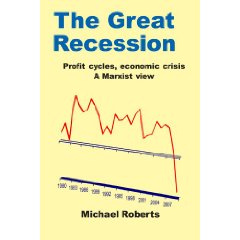Is Marx about to return to mainstream economics?
In the era before 1989, the planned economies of Eastern Europe, the USSR and China offered a completely different command based structure of economic organization. It was therefore natural that the economic theory of Marxism, upon which these systems were ostensibly based, should have had an impact within mainstream economic thought in the West.
Following the Second World War, the theory of welfare Keynesianism; of significant state intervention to ameliorate the worst excesses of free market economics, became the consensus economic model in Western Europe. This remained the case until the late 1970s when the declining economic fortunes produced the new and radical right-wing economic theories of Thatcherism and Reaganism. Influenced by Milton Friedman's Monetarist theory they privatized as much as they could get away with, and sought to rebalance industrial relations by orchestrating labour disputes to break the strongest industrial unions, thereby giving employers more power over the workforce.
The pinnacle of success for this political philosophy was the fall of the Berlin Wall and the collapse of the Soviet Union between 1989 and 1991. However since the collapse of the investment bank Lehman Brothers in September 2008, self-confidence in the dominant Western philosophy of political economy has taken a battering. Economic doom-mongers became part of the mainstream debate and interventionist Keynesianism returned to the center ground of ideology, around which all major governments seem to have converged.
What about Marx? Outside of China, Cuba and maybe Venezuela, few seemed to be taking much notice of him, except as a historical spectre. His analysis of the evils of capitalism was found by many a journalist to evoke apposite comparative descriptions of modern phenomena, particularly the power of greed and the expansion of globalized markets.
What is truly remarkable is that a number of economists studying the data for the United States and other major economies, have detected verifiable evidence for Marx's theory, which identified profit rates as the determinant of the expansion and contraction phases of the system of capitalism. The data shows that profit rates really have moved downwards over the long term, as investment in machinery driven by competition, reduced profits. This is caused by rising investment in machinery vis-à-vis labour power. The Marxist law of Tendency for the Rate of Profit to Fall seems to explain economic cycles, in the same way that Newton's law of gravity explains the impact of the Sun and Moon on the rise and fall of tides.
 In "The Great Recession," a new book published in December 2009, Michael Roberts, an investment guru in the City of London, uses Marx's theory and places it at the center of his explanation of the laws governing modern economics. He produces evidence to show that Marx's theory is the best explanation for the Great Recession of 2007-9. He goes on to claim that the coincidence of downward phases in a number of economic cycles made the Great Recession the biggest economic contraction since the 1930s. Roberts was one of very few investment analysts or economists to predict the Great Recession years in advance.
In "The Great Recession," a new book published in December 2009, Michael Roberts, an investment guru in the City of London, uses Marx's theory and places it at the center of his explanation of the laws governing modern economics. He produces evidence to show that Marx's theory is the best explanation for the Great Recession of 2007-9. He goes on to claim that the coincidence of downward phases in a number of economic cycles made the Great Recession the biggest economic contraction since the 1930s. Roberts was one of very few investment analysts or economists to predict the Great Recession years in advance.
Although Roberts argues the Great Recession has ended, he thinks another recession will hit by 2014, after which investment costs of new capital will have been cheapened sufficiently to begin a new long-term upward cycle of capitalist expansion. Roberts argues that these cycles tend to last approximately 16-18 years from bottom to bottom or top to top.
Roberts says that law of the Tendency of Rate of Profit to Fall does apply to China, but when asked about the potential for China to overcome the impact of this tendency through the intervention of socialist planning principles; to counteract investment strikes caused by low profit rates affecting the private sector, he agreed that public ownership of the commanding heights of the economy would enable China to escape the laws of motion of capitalism, even though it operates in the global market.
You can download Michael Roberts book for free online
Or you can purchase the book from Lulu.com. A Chinese version is planned for 2010.
The author is a columnist with China.org.cn For more information please visit http://www.china.org.cn/opinion/node_7084903.htm
 0
0 







Go to Forum >>0 Comments